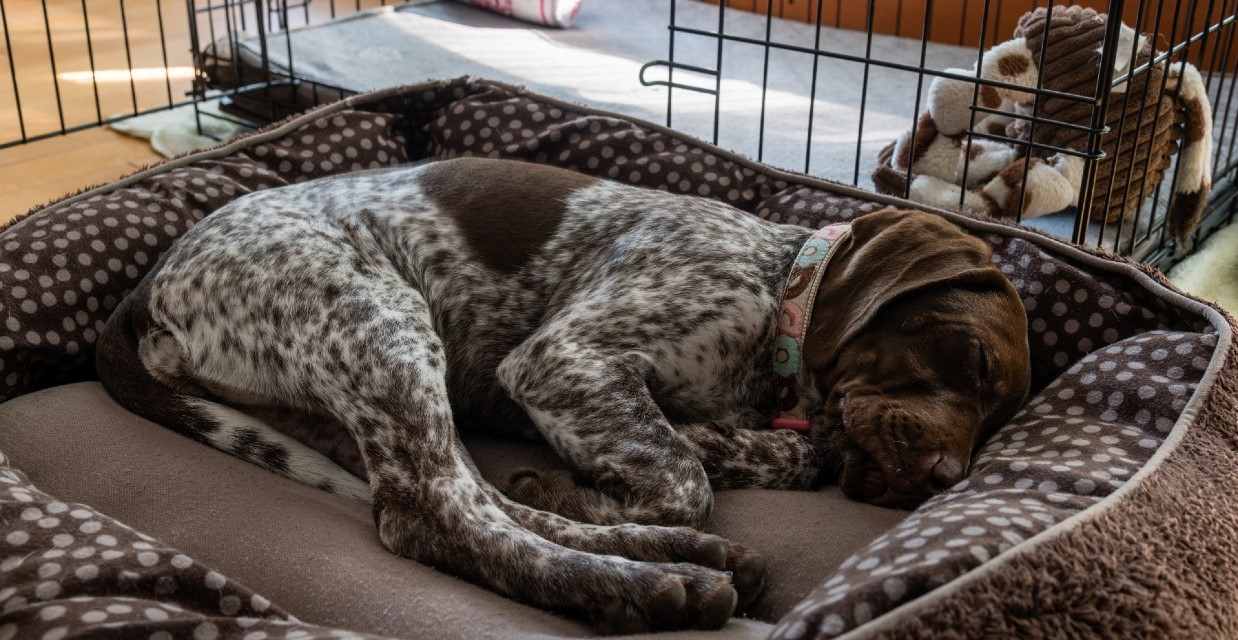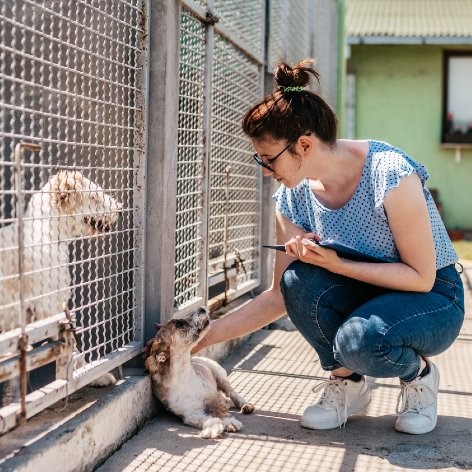Bringing home a new puppy is such an exciting time, however it can also feel a little daunting if you’re unprepared. To avoid the overwhelm, ensure you prepare your home for the first night with your new puppy.
Things you need for the first night with a new puppy
To help ensure the first night with your new puppy runs smoothly for both you and your puppy there are several things you need:
- Ensure you have a warm and comfortable bed set up for your new puppy.
- You might also like to purchase a crate or puppy pen. Placing the puppy’s bed in a crate or a puppy pen is a good idea to help keep your puppy contained when needed and to provide them with a safe and comfortable place to sleep and rest. They can also help with toilet training by limiting and containing toileting accidents.
- Toys! Puppies love toys. Have a variety of toys available for your new puppy including soft and cuddly toys they can cuddle into, toys for chewing on and toys, such as balls, for chasing. Play with toys can help expend all that puppy energy whilst providing an outlet for normal behaviour.
Tired puppies also sleep better!
- Food and water bowls. Place your new puppy’s food and water bowls in a location they can access easily. Show your new puppy where the bowls are located and provide fresh water. Young puppies typically need at least three meals per day as well as access to water at all times.
- Food and treats. You’ll need to purchase puppy food and some treats before you bring your puppy home. Changing the puppy’s diet too suddenly can cause an upset stomach so it’s important to discuss with the breeder or rescue organisation what the puppy is currently being fed. You might choose to feed the same food or to gradually transition the puppy to eating a different brand of food. Puppies have specific nutritional needs so ensure you choose food and treats specifically formulated for puppies.
- A lead and harness will help you teach your puppy to walk on lead. Walking on a lead is a learned behaviour and you can start walking your puppy on the lead inside the house and in the backyard. Start with short walks and always reward your puppy for walking well on the lead. This early training will help them walk well on lead when they’re old enough to go for walks down the street.
- Puppy pads can be very helpful during the toilet training process, especially overnight. Puppies have small bladders and cannot hold on all night. Providing them with an area where they can toilet during the night is an important part of toilet training so they learn not to toilet just anywhere.
The first night with a new puppy
The first night with a new puppy can be a sleepless one for many new puppy parents. It’s important to remember that your new puppy has just been separated from their mother and littermates and is suddenly in a completely different environment. This can be scary for a puppy and can result in separation anxiety. It’s important that you’re understanding of this and comfort your new puppy to help them feel safe.
Many puppies will cry and howl the first night or two, especially if their bed is set up away from you or in another room or area of the house. Some new pet parents decide to allow their new puppy to sleep with them in their bed or on the bedroom floor for the first few nights to help settle them in. Being close to you can help your puppy feel safe and calm.
If you decide you don’t want your puppy to sleep in the bedroom you might have a few nights of your puppy crying as they get used to sleeping on their own.
You can help them feel more comfortable by ensuring they have a warm and cosy place to sleep and a comfort toy. Some comfort toys have an inbuilt heartbeat that can be heard and felt. This is designed to mimic the mother's heartbeat which can help soothe your new puppy.








